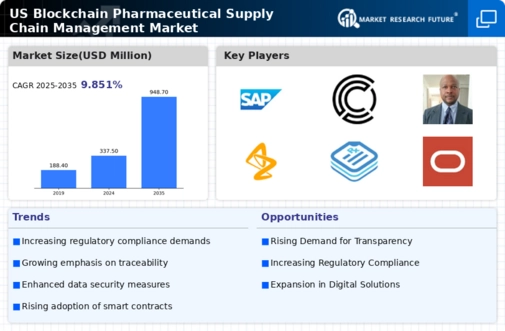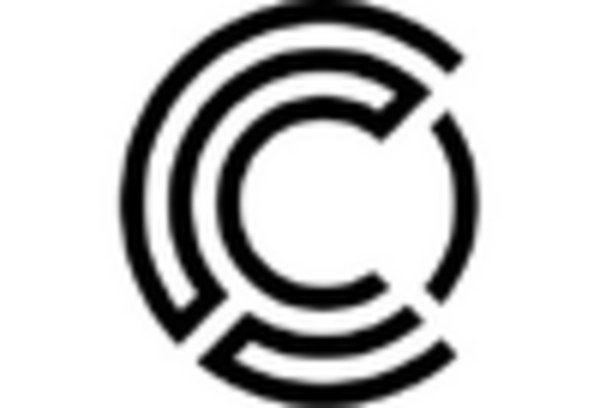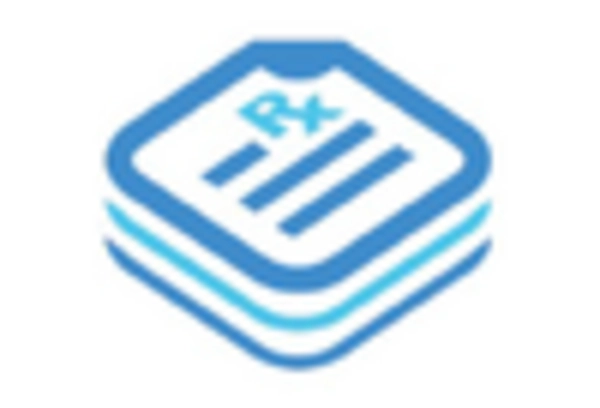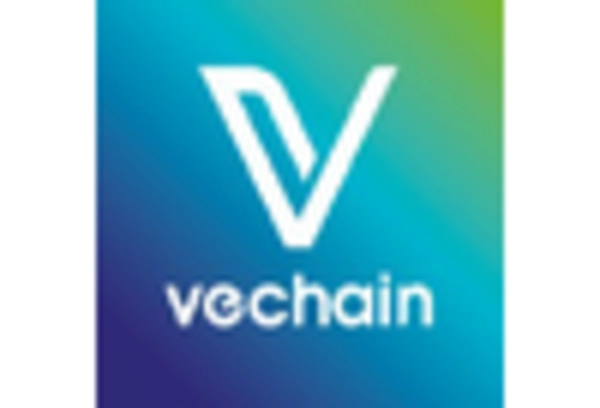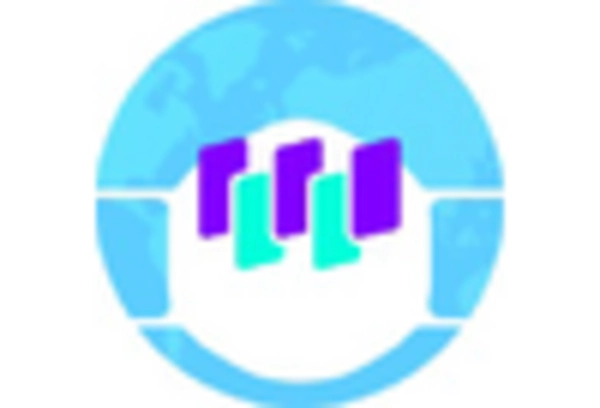Enhanced Security Measures
Security concerns surrounding the pharmaceutical supply chain are prompting a shift towards blockchain technology. The blockchain pharmaceutical-supply-chain-management market will benefit from the implementation of decentralized systems that enhance data security. By utilizing cryptographic techniques, blockchain can significantly reduce the risk of data breaches and counterfeiting. In fact, it is estimated that the cost of counterfeit drugs could reach $200 billion annually, underscoring the urgent need for secure solutions. As pharmaceutical companies seek to protect their intellectual property and ensure the integrity of their products, the adoption of blockchain technology appears to be a viable strategy to mitigate these risks.
Increased Demand for Transparency
The blockchain pharmaceutical-supply-chain-management market is experiencing heightened demand for transparency among stakeholders. This demand is driven by the need for reliable tracking of pharmaceuticals from production to delivery. As consumers and healthcare providers become more aware of the importance of drug authenticity, the market is likely to see a surge in blockchain solutions that provide immutable records. According to industry estimates, the market for blockchain in pharmaceuticals could reach $1.6 billion by 2025, reflecting a compound annual growth rate (CAGR) of approximately 48%. This trend indicates that stakeholders are increasingly prioritizing transparency, which is essential for building trust and ensuring patient safety.
Regulatory Support and Initiatives
Regulatory bodies in the US are increasingly recognizing the potential of blockchain technology in the pharmaceutical supply chain. The blockchain pharmaceutical-supply-chain-management market is likely to benefit from supportive regulations that encourage innovation and adoption. For instance, the FDA has shown interest in exploring blockchain applications to enhance drug traceability and safety. This regulatory backing could lead to increased investment in blockchain solutions, as companies seek to comply with evolving standards. As the market matures, it is anticipated that regulatory frameworks will become more defined, further driving the adoption of blockchain technologies in the pharmaceutical sector.
Growing Focus on Supply Chain Efficiency
The need for improved efficiency in the pharmaceutical supply chain is a significant driver for the blockchain pharmaceutical-supply-chain-management market. Companies are increasingly seeking solutions that streamline operations, reduce delays, and minimize costs. Blockchain technology offers the potential to automate various processes, thereby enhancing overall supply chain efficiency. Reports suggest that implementing blockchain could reduce supply chain costs by up to 30%, making it an attractive option for pharmaceutical companies. As the industry continues to evolve, the emphasis on operational efficiency is likely to propel the adoption of blockchain solutions.
Rising Consumer Awareness and Demand for Authenticity
Consumer awareness regarding the authenticity of pharmaceuticals is on the rise, influencing the blockchain pharmaceutical-supply-chain-management market. Patients and healthcare providers are increasingly concerned about counterfeit drugs and their implications for health. This growing awareness is driving demand for solutions that can verify the authenticity of medications throughout the supply chain. Blockchain technology, with its ability to provide a secure and transparent record of transactions, appears to be a promising solution. As consumers continue to prioritize safety and authenticity, the market for blockchain applications in pharmaceuticals is expected to expand significantly.


